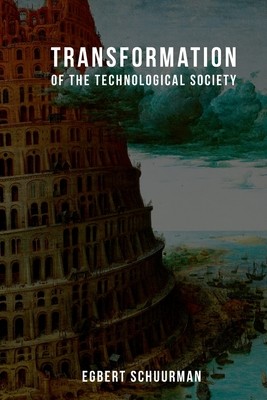
- We will send in 10–14 business days.
- Author: Egbert Schuurman
- Publisher: Dordt Press
- ISBN-10: 0932914152
- ISBN-13: 9780932914156
- Format: 15.2 x 22.9 x 0.9 cm, minkšti viršeliai
- Language: English
- SAVE -10% with code: EXTRA
Reviews
Description
Transformation of the Technological Society looks at technology more critically than often happens today. Many see new technology as offering hopeful, even messianic expectations for the future. Schuurman shows this expectation to be untenable, pointing out how technological applications have led to recurrent disasters affecting society and the natural environment. The author argues for an ethics of responsibility for technology while still creating space for developing technology that truly serves all living things.
Many philosophers confuse abstract theories about technology with reality. While academic abstraction and theorizing are good things, treating them as reality can lead to seriously harmful results. Today's materialistic, scientific-technical mind set tends to make us lyrical about the possibilities of computers, robots, cyborgs, and nanotechnology, while forgetting about how they shape life itself.
Schuurman alerts readers to the danger of blaming economic causes alone for the rise of neo-liberal economics and the problems of the world, without realizing how powerful and even insidious technology has become. He believes that the world's crises can be better understood against the background of the rise of technology. The author also looks at recent Islamic thinkers' ideas about technology, old and new, and explores the possibilities this gives for dialogue together about the world's problems. All the while, deeply shaped by his worldview, he is not afraid to confront what he considers false views of reality.
EXTRA 10 % discount with code: EXTRA
The promotion ends in 21d.21:46:25
The discount code is valid when purchasing from 10 €. Discounts do not stack.
- Author: Egbert Schuurman
- Publisher: Dordt Press
- ISBN-10: 0932914152
- ISBN-13: 9780932914156
- Format: 15.2 x 22.9 x 0.9 cm, minkšti viršeliai
- Language: English English
Transformation of the Technological Society looks at technology more critically than often happens today. Many see new technology as offering hopeful, even messianic expectations for the future. Schuurman shows this expectation to be untenable, pointing out how technological applications have led to recurrent disasters affecting society and the natural environment. The author argues for an ethics of responsibility for technology while still creating space for developing technology that truly serves all living things.
Many philosophers confuse abstract theories about technology with reality. While academic abstraction and theorizing are good things, treating them as reality can lead to seriously harmful results. Today's materialistic, scientific-technical mind set tends to make us lyrical about the possibilities of computers, robots, cyborgs, and nanotechnology, while forgetting about how they shape life itself.
Schuurman alerts readers to the danger of blaming economic causes alone for the rise of neo-liberal economics and the problems of the world, without realizing how powerful and even insidious technology has become. He believes that the world's crises can be better understood against the background of the rise of technology. The author also looks at recent Islamic thinkers' ideas about technology, old and new, and explores the possibilities this gives for dialogue together about the world's problems. All the while, deeply shaped by his worldview, he is not afraid to confront what he considers false views of reality.


Reviews